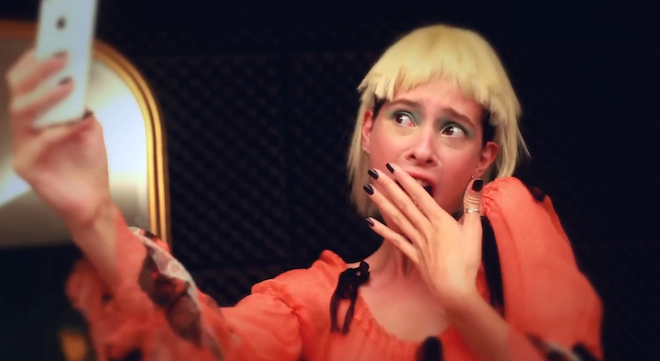
An Infernal Demand
To celebrate All Hallow’s Eve Paul Franco directed this spooky fashion film, written and produced by Ella Rosa Hart exclusively for Twin.
The tongue-in-cheek short stars Jessamine Bliss Bell as ‘The Girl’, dreamt up by three ad execs as they try to come up with something chilling for their Halloween pitch. We follow her on a strange and bizarre journey, watching the spooky events unfold.
Happy Halloween!
Director: Paul Franco
Producer & Writer: Ella Rosa Hart
Stylist: Hannah Sheen
Tags: Ella Rosa Hart, Fashion Film, Halloween, Hannah Sheen, Jessamine Bliss Bell, Paul Franco
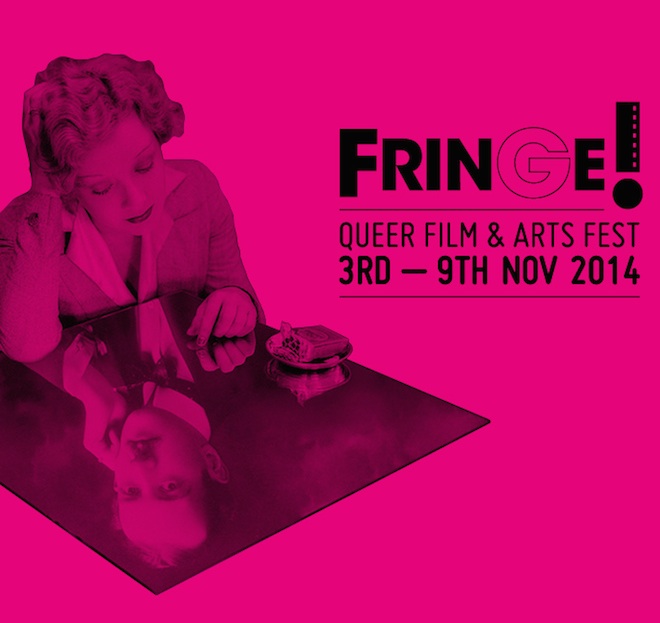
Fringe! Queer Film & Arts Festival
Showcasing a programme of film, art, workshops and parties in various East London venues, the Fringe! Queer Film & Arts Festival is back for it’s fourth edition, extended from a long-weekend to a week-long event.
With several UK premieres and a Visual Arts programme, showcasing work created especially for the festival, you’ll be able to immerse yourself in projects such as Jeffery Hinton‘s new venture Willy Nilly, as well as a retrospective of the work of Stuart Sandford and Ken. To Be Destroyed by Sara Davidmann. NYC art-duo Slava Mogutin and Brain Kenny celebrate 10 years of collaboration, screening their short films at Forge & Co as well as throwing an art party with all the Fringe! audience invited to participate in a body painting installation and live photo shoot.
Fringe! Queer Film & Arts Festival runs from 4th-9th of November.
fringefilmfest.com
Tags: Fringe! Queer Film & Arts Festival
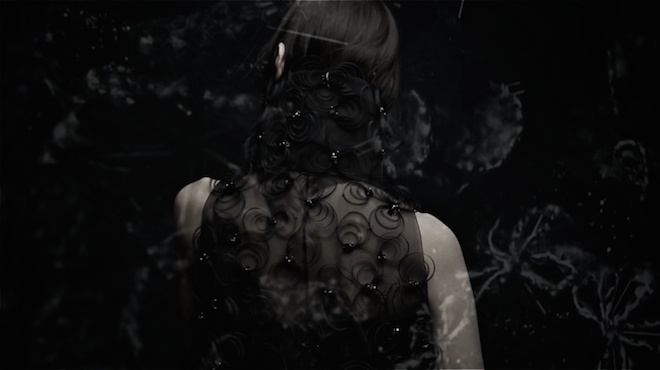
Chanel Revue’14
This dramatic short from director Trevor Undi beautifully documents the last two years of the House of Chanel. With an orchestral score composed by Gabriel Yared, the film showcases intimate behind the scenes footage with many a famous face. It revisits memorable campaigns, international events and spectacular archival footage from Karl Lagerfeld’s design house reminding us just how significant Coco’s legacy remains.
chanel.com
Tags: Chanel, Fashion Film, Trevor Undi
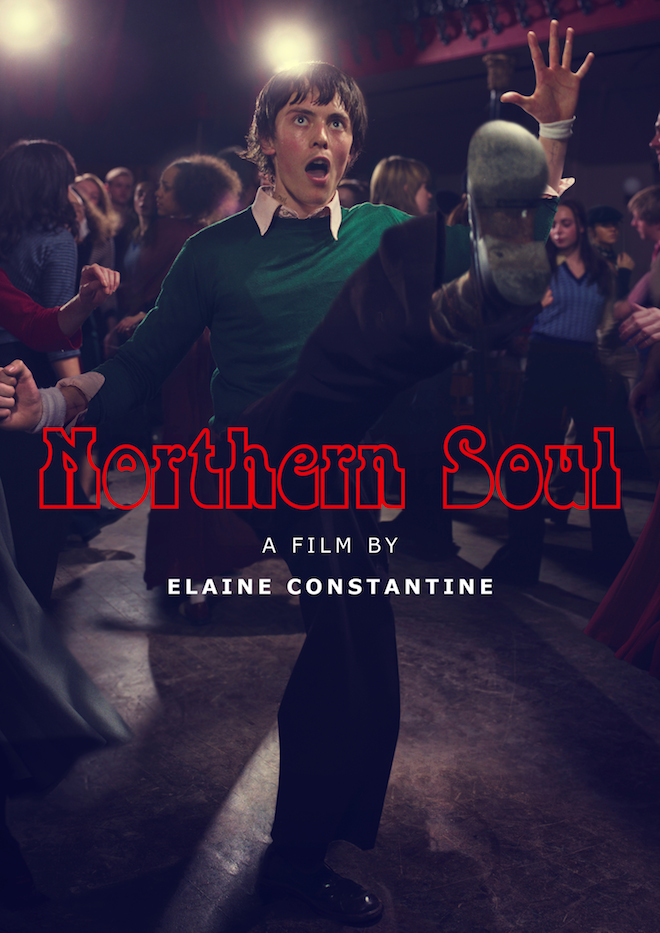
Northern Soul
Elaine Constantine’s most ambitious project yet is a feature film, written and directed by herself. Having started as an assistant to Nick Knight, she went on to become highly respected in the industry, contributing to the documentary style fashion photography of the 1990’s and early 2000’s, seeing her images published in magazines such as The Face.
Constantine’s work always centred around regular individuals having fun and expressing themselves. Northern Soul is no different. A love letter to the 1970’s Northern England dance movement, when rare American soul music came sweeping into the nightclubs, it’s cast includes Steve Coogan and Lisa Stansfield, and is set to be a youth-culture modern classic.
Norther Soul is out in cinemas now and was released on DVD today.
northernsoulthefilm.com
Tags: Elaine Constantine, Northern Soul
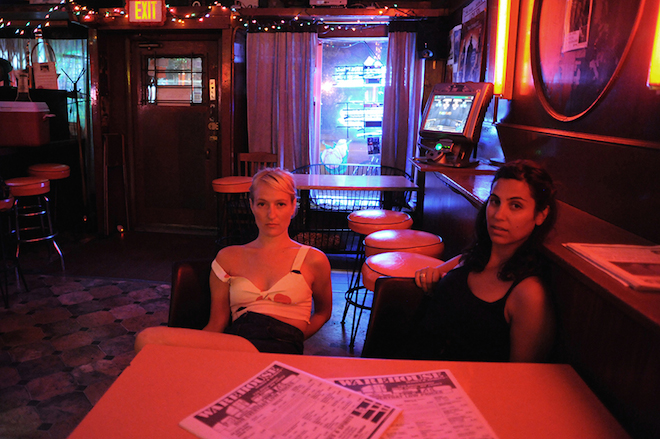
Buttercup Bill
Buttercup Bill, the debut feature from filmmaking team Emilie Richard-Froozan and Remy Bennett, is billed as a “psycho-sexual doomed love story.” The screen successfully offers a love story complex and rich with that same kind of psychological entanglement and intensity we so often seek during our childhood years. Off-screen, the directors have their own kind of love story: a friendship that began when they were sixteen during an overseas acting/directing course through TISCH.
Coming full circle, Buttercup Bill recently made its European debut at Raindance and will be playing at the New Orleans Film Festival at the end of October.
Why did you choose to film in New Orleans?
Remy: Well, the setting was rural and we needed a rural setting. And we had friends down there.
Emilie: I fell in love with someone who lived down there and I went down there and that was the catalyst: the house that this person lived in…
Remy: We shot the movie in that house that belonged to the person she fell in love with.
How did it feel to shoot in that house?
Emilie: It’s more that it was the people I met there: all of the community. A lot of those people are in the film and it was just a magical experience so it was kind of like no matter what happens–when we were in production–we just had to shoot it in that house because that house was like a magical place.
What was the process of writing a script together like?
Emilie: Lots of cigarettes.
But what was the physical process itself like? Did you pass it back and forth?
Emilie: No, we’d sit in the same room.
Remy: But we passed it back and forth too. We went through so many phases.
Emilie: Well, we’d start a new scene and then we’d go away and come back.
Remy: It was a long process.
Emilie: It took us like a year and a half to two years.
Remy: You go through so many different techniques. We would talk it out sometimes or we would go away and write stuff and exchange it.
Emilie: We’d go to hypnotists and get hypnotised.
Remy: Or we’d go to a restaurant and get a bottle of wine and just talk for thirty hours one session. But we set it up so it was really our job; we had a schedule.
Which was?
Emilie: We worked odd jobs basically and we would sit down and the next thing you know, seven hours had passed.
Remy: We would usually meet at ten in the morning. So, she’d say, “Come to my house at ten” and we’d sit down and be like, “This is our day and we’re not going to leave until seven.” So we would just sit down no matter what was happening, whether it was us just talking or exchanging stories or talking about our lives and being like, “Oh fuck, let’s write this down.” Or we’d have other days where we just wrote, wrote, wrote…
And, of course, you knew you were going to co-direct and Remy would be acting the role you were together writing for her.
Emilie: Yeah, I had a dream during the whole Buttercup Bill thing and I had just gotten back from New Orleans. I had this dream that there was this blonde girl from behind and I knew it was Remy and I was in the desert and I yelled her name and she turned around but it wasn’t Remy, it was a different name I had called. And when I woke up, I forgot the name and I was like, “I know this name. The name is…” But I couldn’t remember it.
My random friend from when I was 15 who I met abroad and who I haven’t spoken to in ten years… I found him on Facebook, wrote him and said, “What was the name of your really mean Swedish girlfriend when you were twenty?” And he was like, “Pernilla.” And I was like, “That’s the name!” And we just started from there. That name, I always knew.
It must be amazing to see this film as a sort of culmination of your relationship up to this point.
Emilie: Yeah, Remy and I met doing an acting/directing class when we were 16. It was at TISCH but it was in Dublin. Remy was in my first short; we made our first short together.
And you just automatically vibed?
Emilie: I can’t get enough of watching her on the screen. And I know that I’m not the only one: she’s it. You know, there are some people that you just want to watch and there are some that you’re like, “I don’t really need to watch them.” Not her. She’s meant to be on the screen.
buttercupbill.com
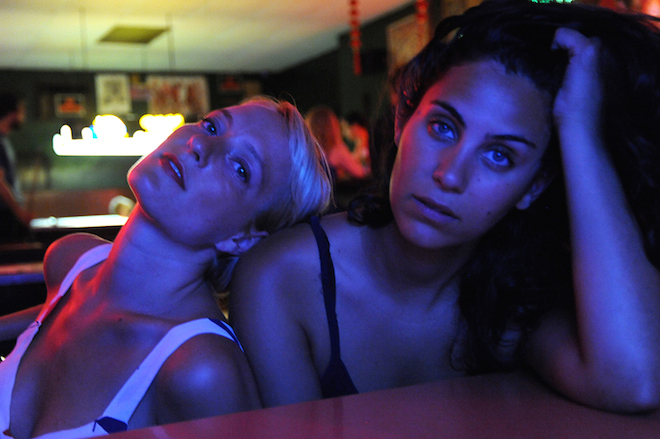
Photography by Kelsey Bennett.
A portion of this interview originally ran at Alldayeveryday.
Tags: Buttercup Bill, Emilie Richard-Froozan and Remy Bennett, film
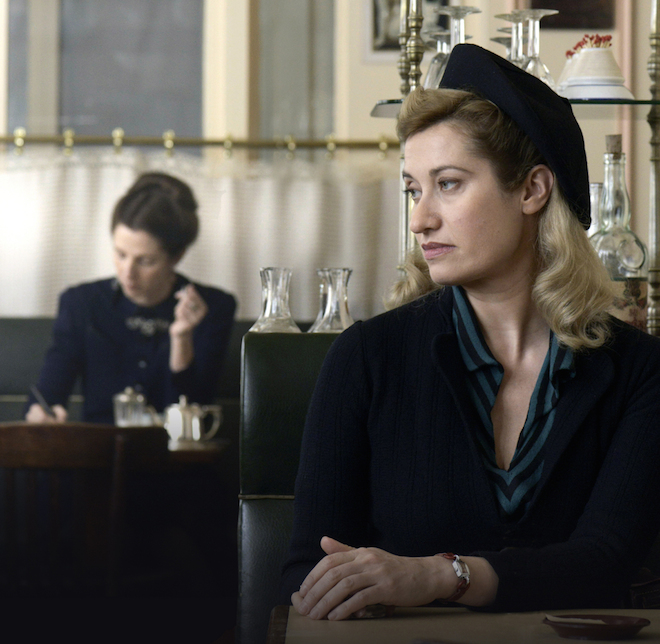
Violette
Martin Provost’s Violette looks at the the real life story of Simone De Beauvoir’s literary muse Violette Leduc. A writer herself, Violette – played by Emmanuelle Devos – led a troubled, emotional life, always wanting what she could never have. Although she was a lesbian, she was prone to falling in love with heterosexual women and gay men alike and became obsessed with De Beauvoir who did not reciprocate.
Full of left bank literary and philosophical history, the film gives us an honest insight into a writer’s world.
Violette opens in cinemas on October 3rd.
Tags: Martin Provost, Violette
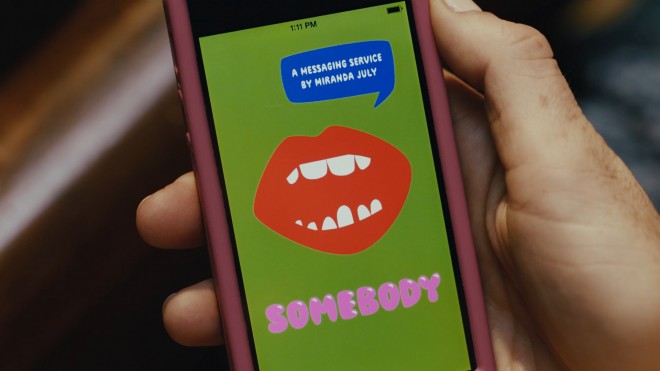
Miu Miu – Women’s Tales
This year at the Venice Film Festival on 30 August, fashion giant Miu Miu screened its Women’s Tales project, paying homage to talented women of the silver screen. The series of eight short films were directed by up-and-comers like Zoe Cassavetes, Lucrecia, and Miranda July. These fashionable featurettes, with their wacky but pensive subjects, are all accessorised by beautiful clothing and fabrics from Miu Miu (of course).
The latest instalment is Somebody, by writer, filmmaker and artist Miranda July. July wrote for the first issue of our very own Twin magazine, and has been going from strength to strength ever since.
Somebody accompanies the release of the eponymous app, a new messaging service that enables you to say something difficult to someone you love. Her ironic, witty and touching short film includes a tragedy featuring a sick mother, a devastating break-up, and a bizarre ménage-a-trois between two prison guards and pot plant named Anthony.
This quirky analysis of society’s hunger for communication and technology feels fantastically surreal, but with a striking element of truth.
miumiu.com
somebodyapp.com
Tags: app, Fashion, film, Miu Miu, technology
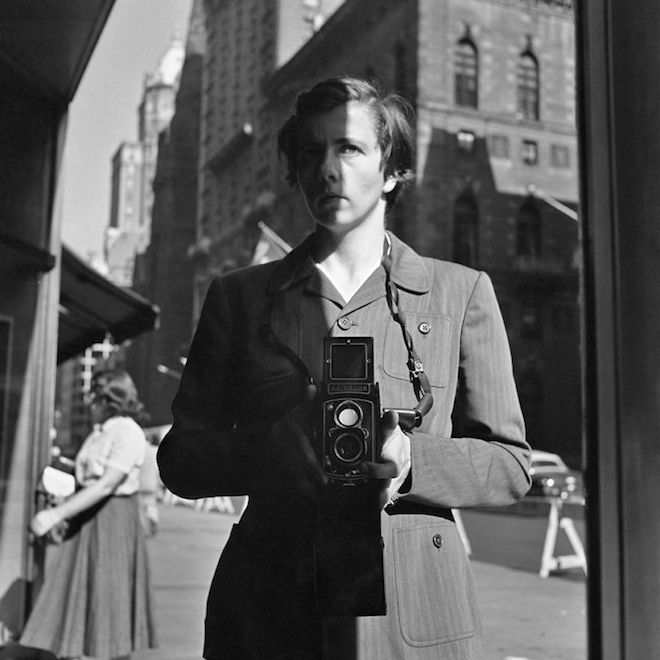
Charlie Siskel Q&A
With the release of Finding Vivian Maier drawing closer, Twin spoke with director Charlie Siskel to find out more about the documentary that looks into the life of the mysterious nanny that took over 100,000 photographs, only to be discovered decades later (watch the trailer here).
Tell us a little about how the project came about?
John Maloof bought the original box of negatives because he was working on a book about Chicago. These pictures didn’t work for the book but the more he looked at them the more he recognized there was something special about them. At the time he didn’t know anything about photography but the photos inspired him to start taking pictures himself. Eventually he scanned some and put them online just to hear what other people thought. The reaction was incredible and they went viral. That’s when he knew he had found something special.
How did John go about contacting people who knew Vivian?
John contacted someone by phone who’s address was on a slip of paper in the box of negatives he purchased. He told them he had the negatives of Vivian Maier and the person said, “Vivian was my nanny.” That was the point when he realized there was an interesting story here. He started to search for people who knew her and eventually started filming interviews.
When did you get involved in the film?
I thought this was a great story the moment I heard it. A nanny takes over 100,000 photographs and hides them in storage lockers, and they are discovered decades later and she is hailed as one of the great photographers of the twentieth century – what a great story! I thought this could be a great feature documentary that should be seen in theaters. It is a great story of discovery, a detective tale, a mystery, a roller coaster ride and “an entertainment,” as they used to say. I also grew up in Highland Park where Vivian worked and I thought it would be interesting to tell this story of an artist through the eyes of those who knew her.
How closely does the documentary follow John Maloof on his quest to find out who Vivian Maier really was?
The film is about Vivian Maier but it can’t be told without her discovery — not only would Maier’s story not have an ending, there would be no narrative. So John’s discovery is central. But [the film] explores the mystery of who she was and how she lived a double life publicly as a nanny and privately as a brilliant artist, told through the eyes of people who knew her not as a photographer but as the woman that looked after them, so their accounts are limited, flawed and incomplete. The viewer has to fill in the blanks, judge for herself, and we invite this kind of scrutiny.
People in the film contradict each other — one says that she had a fake accent, another says it was real; someone says she posed people, another says she photographed them just as they were. So part of the film is our exploration of Maier as this secret artist — a kind of detective story. The other narrative in the film follows John’s effort to share Maier’s work with the world and “put her in the history books.” Starting with sharing her work online and mounting his own show of her work in Chicago and then trying to gain acceptance of her work among institutions.
You must have ended up with lots of footage. Was it a difficult project to edit down?
That is a challenge, but once you understand the story it is easier to make these decisions. That is where documentary storytelling combines art and journalism. It is not just a recitation of facts — not a movie version of the Wikipedia entry on Vivian Maier. Just because some things are interesting about Maier doesn’t mean everything is interesting about her. The challenge is to tell the story using the elements you have — and we had Maier’s photos, audio recordings, super 8 films, the belongings she left behind and the stories of people who knew her — in an entertaining an enlightening way.
Once we recognized that this was the story of an artist who went undiscovered during her lifetime — in part because she kept herself hidden but also because we as people don’t always know where to look to find art — it became easier to see what belonged in the film and what didn’t. But yes you always have to make tough choices and say goodbye to individual scenes/things you love in order to make the film work as whole.
What was the most interesting thing you discovered while working on the film?
At first I thought this was a nanny who somehow happened to take thousands of photographs, but that was 180 degrees wrong. She was a true artist, who just so happened to be a nanny, but that was her means to an end, her camouflage and masquerade – that was the biggest discovery. I could see how Maier would feel like an outsider in this world of suburban wealth and privilege. She was misunderstood.
Finding Vivian Maier is released in the UK tomorrow, July 18th.
findingvivianmaier.com
Images: ©Vivian Maier/Maloof Collection
Tags: Charlie Siskel, documentary, Finding Vivian Maier
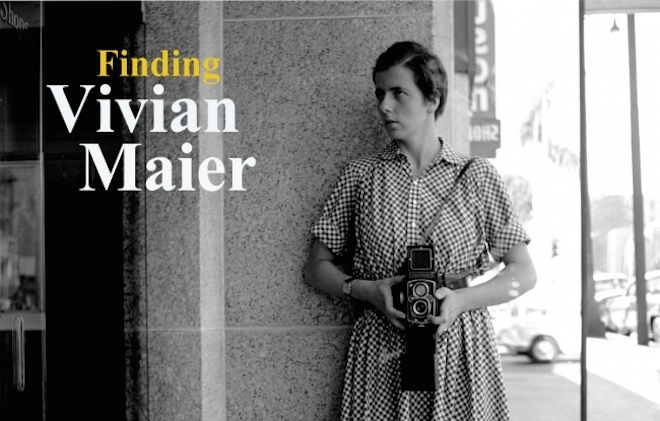
Finding Vivian Maier
Finding Vivian Maier is the story of a mysterious nanny that took over 100,000 photographs which were then discovered decades later and would make her one of the 20th century’s greatest photographers. Directed by John Maloof and Charlie Siskel, the film focuses on Maier’s strange and riveting life and art, revealed through never before seen photographs, films, and interviews by dozens who thought they knew her. In 2007 her work was discovered at a local thrift auction house on Chicago’s Northwest Side, impacting the world over and changing the life of the man who championed her work and brought it to the public eye, John Maloof. Now, Vivian’s work is part of a renaissance in interest in the art of street photography.
Finding Vivian Maier is released in the UK on July 18th.
findingvivianmaier.com
Tags: Finding Vivian Maier, photography
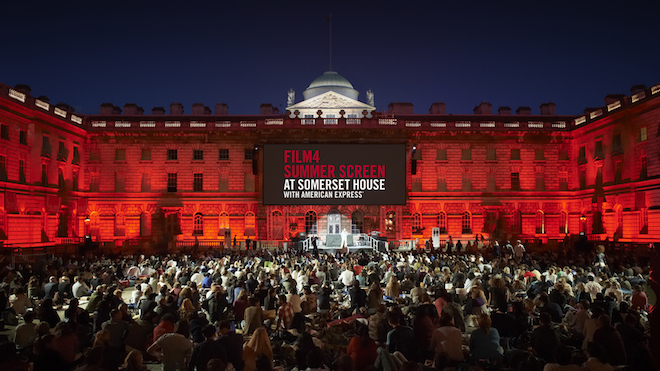
Film4 Summer Screen at Somerset House
This August see’s the 10-year anniversary of the ever popular Film4 Summer Screen at Somerset House. Running from the 7th-20th August, they are set to be the showcasing of premieres, as well as showings of cult classics and much-loved movies, such as Annie Hall, Ghostbusters and E.T.
One of the UK premieres includes the documentary 20,000 Days on Earth, being shown on Wednesday, 13th August. Directed by Iain Forsyth and Jane Pollard, this is a vividly cinematic documentary film that constructs an imaginary day-in-the-life of the oh-so-cool Australian musician, author and screenwriter Nick Cave.
Following him from his Brighton bedroom to the Sydney Opera House, it explores the creative process and the nature of collaboration. Forsyth and Pollard manage ‘guest stars,’ archive material and live footage to create a mysterious and moving portrait of a one-of-a-kind artist.
Other available movies: the double bill of Hairspray (1988) + Spring Breakers on Friday 15th as well as The 400 Blows on Monday 18th August.
Doors open at 6.30pm, DJ from 7pm and the film starts at approximately 9.00pm. Selected screenings will also be specially introduced by the film’s stars and directors.
Tickets available from ticketmaster.co.uk
Tags: Film 4, Somerset House

Sun City Poms
In Twin X, Danielle Levitt visits Arizona to meet the SUN CITY POMS, an acrobatic Arizonian Dance Troupe of women in their 60’s, 70’s, and 80’s. Here, Levitt captures the women in this short film to give us a greater insight into their lives, showing us that they are a force to be reckoned with.
The 10th issue of Twin is out now. Buy here.
daniellelevitt.com
Tags: Danielle Levitt, Sun City Poms
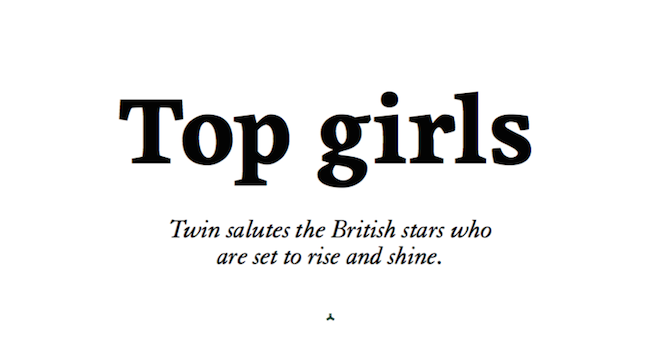
Top Girls
We’re celebrating our tenth issue this season, which means it’s been five years since our first Twin book was released. To celebrate, we thought we would look back over the issues, reminisce a little. In Twin V we spoke with actors, artists, playwrights and more for a feature called Top Girls, a look at the emerging British names set to be stars. Here, Twin caught up with some of those girls to see where they are now…
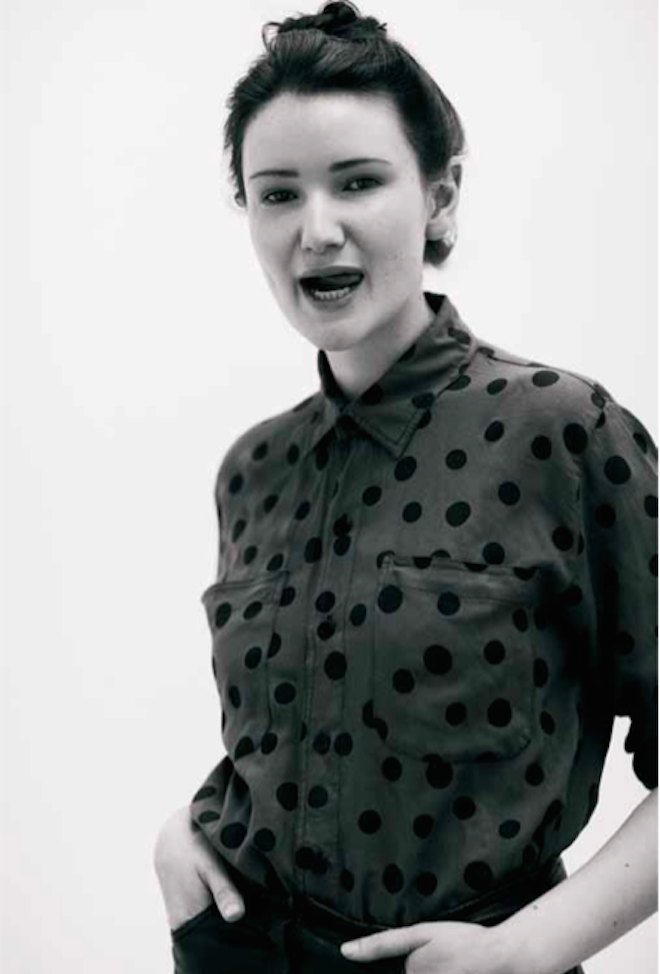
Lily Jones
When we last spoke to Lily, an artisan baker, she had only just written a business plan, hired staff and opened a café on Columbia Road. Things are now a little more global: “I have been working on a bakery project in Kochi, India which is now open for business and I also consult for 5 bakeries in the Middle East.” As well as her international feats, Lily recently released her second book, Sweet Tooth and also (somehow) finds time to act as co-founder of The YBFs, “a food & drink awards which spotlights and celebrates new, innovative talent in the industry. Our 3rd annual event this year will be hosted at Tate Britain.” Busy just doesn’t cut it.
lilyvanilli.com
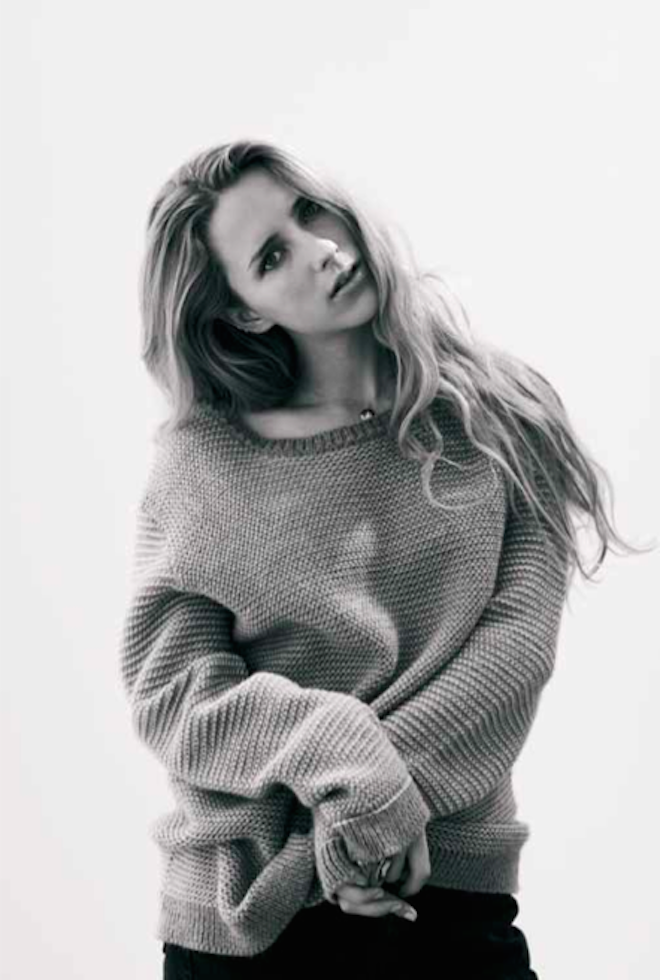
Harley Weir
As well as working on projects with subjects such as “the suburban heaven” in which she grew up, Harley teaches part-time and is attracting jobs that are more in tune with her interests. “[I am] finally putting a few brain cells aside for fashion, which I have come to admit (as hard as it was) is my trade.” With past clients such as British Vogue, Paul Smith, Another Magazine, Topshop, I-D Magazine, Supreme and Stella Mccartney to name a few, it’s safe to say this photographer has come a long way since her sexual photo-diary.
harleyweir.tumblr.com
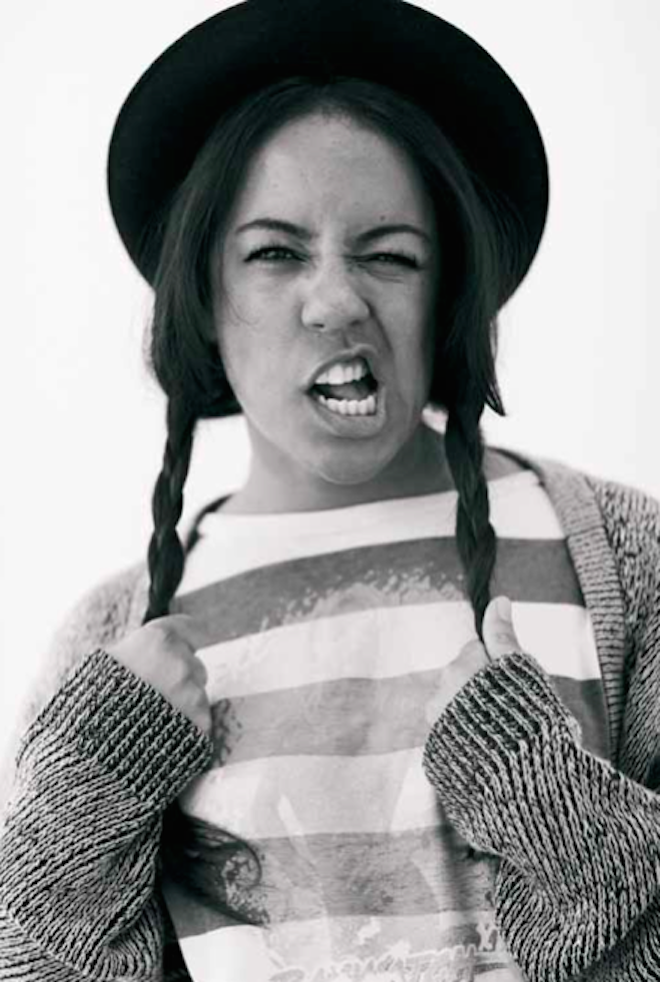
Rachel De-lahay
Rachel’s debut play THE WESTBRIDGE was about to open at the time Twin V was released and it went on to win Best Play at the Writers Guild Award. De-lahay also received acclaim for her second piece of theatre, ROUTES, winning the Evening Standard Award for Best New Playwright.
This young writer is about to open her third play in Birmingham this May, before it comes south to the Tricycle Theatre in London. For her next move, we will see her work on screen as she has just completed a pilot for a new BBC drama. “I’m [also] currently writing a feature film with Film Four and Independent (the producers who made We Need To Talk About Kevin) and was selected as Screen Nations Screen Star of Tomorrow, and am developing my own comedy drama series for Channel Four as well as adapting a blog for Fox Television.” De-lahay is certainly a name we are going to see much more of in the future. Watch this space.
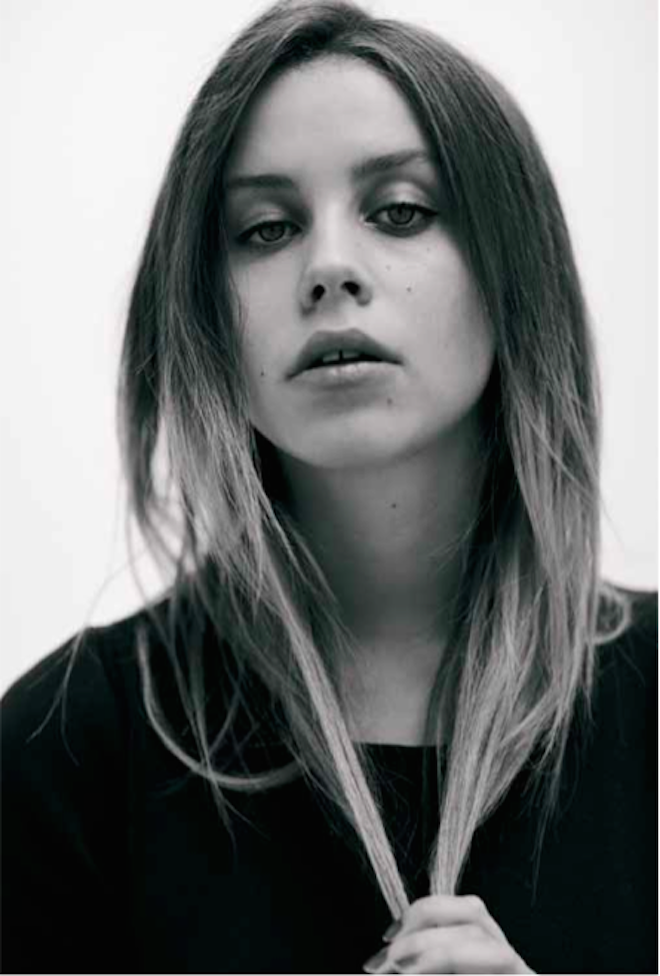
Billie JD Porter
For Billie it was never really about the DJing; that and the music writing/promoting acted as a platform to help her get on her way (at the tender age of 14 we might add). Documentaries were the end goal and having just spent seven months in South America, working on a series of films for the BBC called ‘Secrets of South America,’ it seems that dream is now a reality. But what of the parties? “There’s a lot less chaos in my life at the moment. I’m not sure if that’s a permanent thing though.”
billiejd.blogspot.co.uk
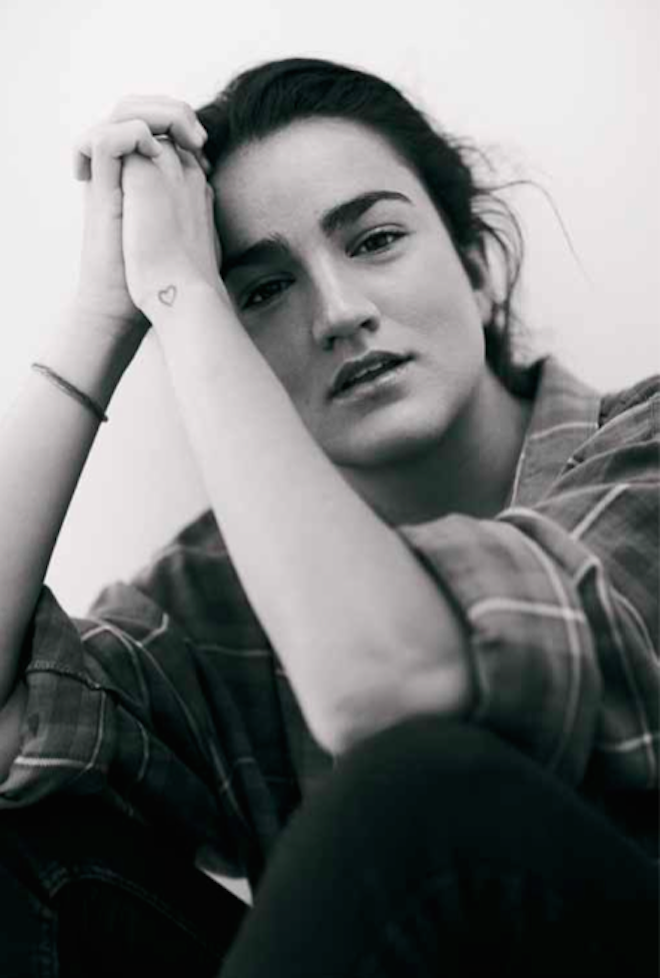
Julia King
“Around the time that I was in Twin I won a Holcim Award in the ‘Next Generation’ category, an international competition that recognizes innovative projects and future-oriented concepts which really helped kick start my career.” And what a career this architect already has. One that has brought sanitation infrastructure to 2000 plus people in a resettlement colony in Delhi called Savda Ghevra, through her work with CURE. This year has been spectacular for King she states, “I was awarded the Emerging Woman Architect of the Year by the Architectural Journal and won a SEED Award for ‘Excellence in Public Interest Design‘ for the sanitation project in Savda Ghevra.” But that’s not all of them, last year King was also included in ICON magazines ‘Future 50′ – a snap shot of 50 young designers and architects who are pushing the boundaries of their disciplines and trying to change the world. And that PhD she was working on when we last spoke, well that will be completed this summer.
julia-king.com
Photography: Nick Dorey, originally published in Twin V
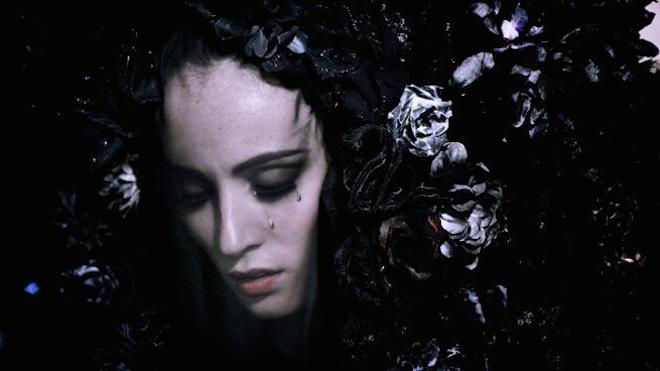
Birds Eye View 2014
Yesterday marked the start of the feminist film festival Bird’s Eye View here in London. Running until Sunday 13th April, this week has a jam packed schedule of films, documentaries and events, all championing female talent.
One event we think would be of real interest to Twin readers is Fashion Loves Film at the ICA on Friday. To celebrate the 10th year of BEV, female filmmakers across the world will explore how images of fashion reflect culture and identity in a selection of short films. Highlights include Lena Dunham’s brilliantly quirky Best Friends (Rachel Antonoff Fall 2013); SHOWstudio Head of Fashion Film Marie Schuller’s exploration of Asian Couture; Kathryn Ferguson’s Irish fantasia Mathair, plus a selection of shorts by Miu Miu. A real treat!
Book tickets at ica.org.uk
Find the full list of events for the festival here birds-eye-view.co.uk
Tags: Birds Eye View, Feminism, Film Festival
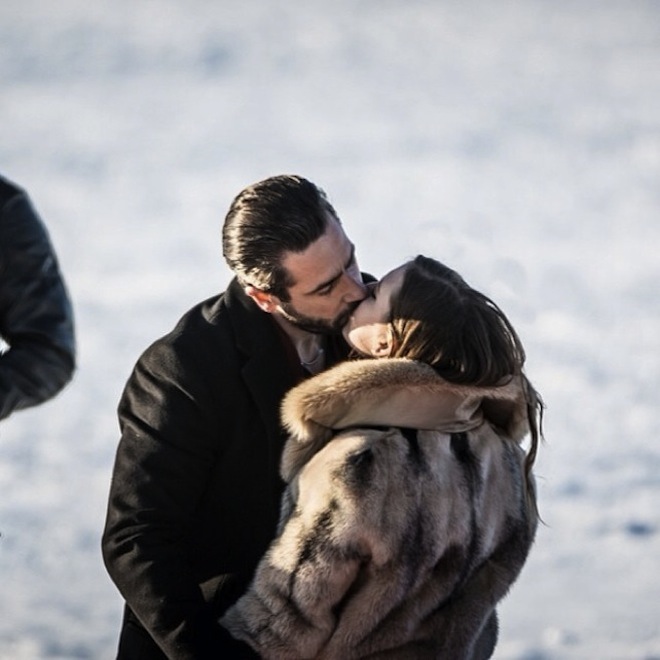
Lykke Li in Tommy
Swedish singer Lykke Li is to make her acting debut in a new crime drama titled Tommy, set for release in March. Directed by Tarik Saleh, Li plays Estelle, a woman living on the run after her small-time gangster husband is involved in one of the biggest robberies in Swedish criminal history. Saleh has directed a number of Li’s videos in the past, including I Follow Rivers and Sadness Is A Blessing.
lykkeli.com
Tags: Lykke Li, Tommy

Winter Cinema at The Berkeley Roof-Top
This winter, The Berkeley Hotel has once again transformed its roof-top terrace that overlooks Hyde Park, into the most beautiful pine-filled forest cinema. Hotel guests and Londoners are treated to winter classics on the big screen, in their very own individual handmade cabin huts draped in fur, and perfect for two people.
To keep cosy there are warm down feather Moncler blankets, hot water bottles and home-made hot chocolate. Berkeley mince pies are also on offer for a very festive atmosphere.
Screenings at The Berkeley’s Winter Cinema will be running until January 31 2014, and winter classics include ‘Miracle on 34th before Christmas”.
www.the-berkeley.co.uk
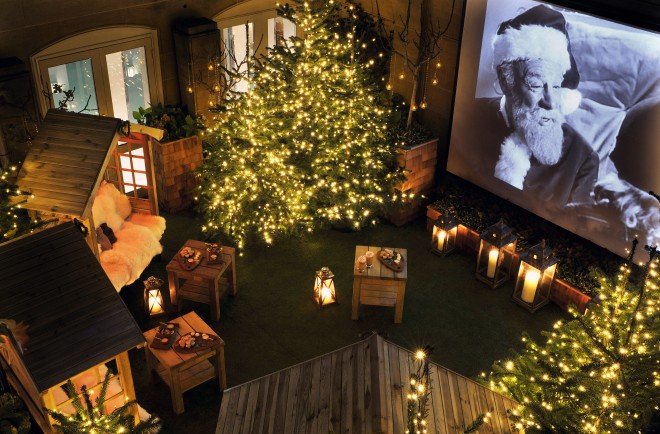
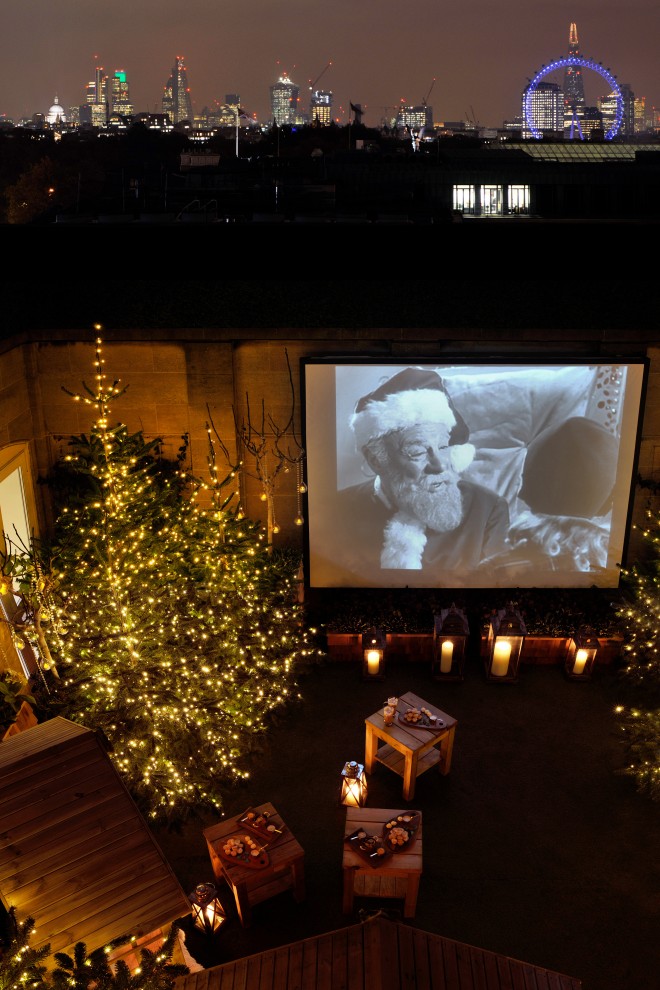
Tags: The Berkeley Hotel
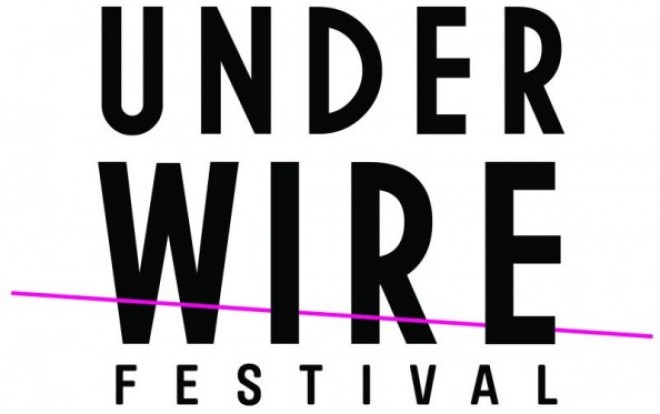
underwire festival
This month sees the fourth annual UnderWire Festival take place in Hackney.
UnderWire’s founders launched the festival in 2010 with the belief that women working in the UK film industry needed more encouragement and a bigger platform for their work. Their belief is that women still make up a small proportion of film creatives, and their aim with Underwire is to recognise the best short work made by women across a range of crafts – from director to cinematographer; screenwriter to editor. Their team believes that a more gender balanced industry will benefit everyone by creating a diversity of perspectives, stories and experiences for audiences. Bringing together film and feminism, the four day event takes place from the 19-23 November. You can buy your tickets and find out more here: underwirefestival.com
Text by Beccy Hill
Tags: Gabriella Apicella, Gemma Mitchell, UnderWire Festival
- video: <iframe src="//player.vimeo.com/video/71832952" width="660" height="371" frameborder="0" webkitallowfullscreen mozallowfullscreen allowfullscreen></iframe> <p><a href="http://vimeo.com/71832952">Pretty Pretty</a> from <a href="http://vimeo.com/user9283384">Juju Sorelli</a> on <a href="https://vimeo.com">Vimeo</a>.</p>
Pretty pretty
Juliana Sorelli is a young french film director living in Los Angeles. She left Paris and its old beautiful buildings about one and a half year ago. She has found a new aesthetics in LA and loves the square buildings and the blinding neon lights. Perhaps that is what inspires her to make films.
Juliana is pretty much self-taught, she took a couple of classes in film but didn’t feel comfortable with the strict guidelines from the school and the teachers. She knew what she liked and what she wanted to do, so she mostly learned by watching a lot of movies and reading books about directors she liked.
Today Twin is excited to premiere Juliana’s new short film Pretty Pretty, an ironic essay about physical beauty and the sublime. We had a chat with the young director about the film and what beauty is for her.
Tell us about Pretty Pretty…
Well, it took a long time to make it. Usually when I have an idea, I start making it the week after and then two weeks later it’s done. But this one took almost six months, because the movie sort of constructed itself. It was just a one minute video from the beginning, with me in bandages saying all these quotes. And then I really liked the video and I thought I should do something more of it. I showed it to some friends and they also wanted to see more.
So you are acting in the film?
Yes! Before I started to make films I thought I wanted to act. But the more I was doing it, I couldn’t stand someone telling me what to do, because I felt it wasn’t me or it wasn’t right, so I slowly realized it would be much better if I acted for myself and produced my own things instead of controlling other peoples work. If there is a part in my film that I feel that I can do and that I’m right for it, I’ll do it.
Where did you find the inspiration for the short?
That first bit came up from an AA meeting. I’ve been sober for three years now, but I sometimes have to go to AA meetings, but I don’t like them that much. Many times people are going up there talking nonsense, but everybody claps and laughs no matter what they’re saying. They could be saying anything and everybody are cheering for them. So I was sitting at the AA meeting and thought it was a bit weird, these people don’t really listen, it’s just for show. Then I came up with the idea of a kind of “AA meeting”, but focused on women and plastic surgery. And at the same time I was reading this anthology about beauty and the sublime, and I got really into that and it helped me to develop the other stories.
What is beauty for you?
I think that being from France, I am used to a certain kind of aesthetics , especially from Paris with all those old buildings and that kind of pretty. But I was born there, and for me it is normal and really dull, and I find some parts of LA more beautiful. Everything is squared and there are neon lights everywhere and I find that really interesting. But I understand that many people think that this is just ugly. So it is kind of the opposite of what someone from here would think. Maybe I can find beauty in things that are not standard beautiful and different. But I can’t really explain why, it is like a compulsive attraction.
Is there a message in the film?
The common point in the three stories is that women tends to be focused on their own personal beauty. But admiration for beauty and glamour can be a curse. In two of the stories the women realize that there is also something more important than your own self and your own body. You are part of a bigger experience that goes beyond how you look and all the material things around you.
In these films two characters find their places in life when they realize how grand the world is. One of them gets this experience at the ocean, the other among the mountains. The only one who doesn’t find her place is the purely narcissistic person in the second story who gets totally lost in herself.
For me that’s the message behind the film. Everybody can get a bit self obtained and think that what we experience right now is so dramatic and important. But when you think about it for a second you realize that there are so much going on around us that is much more exciting than our small daily problems. That’s how I see it but I’m not sure if everybody else will see it like that.
Any other exciting projects coming up?
I just started up my own company, and I’m working together with a producer. I’m writing scripts and we will start sending them to festivals, actually I just finished editing another short film, it’s a fifteen minute long dark comedy.
It’s crazy how much have happened in one year. Perhaps next year I will be making features! I hope so! I am so grateful that I found out what I want to do and that I can actually make it. If I get an idea, I just need to give it a try. If it doesn’t work out, then at least I gave it a try.
Tags: Juliana Sorelli
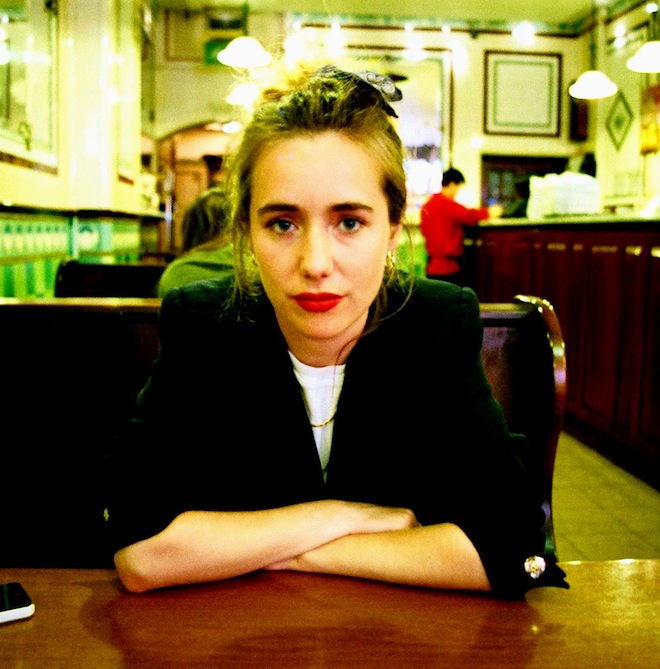
The world through the lens of Lucy Luscombe
Lately we’ve been glued to our screens thanks to the work of film writer/director/producer Lucy Luscombe, who has recently garnered accolades such as the BFI Future Film Award and Outstanding Female Talent Award at Underwire Festival for her work. From the trials and tribulations of a young gymnast in Candy Girl to late night occurrences in a Dalston kebab shop in Again Sometime, the CSM graduate’s films offers a captivatingly honest insight into the everyday challenges of human existence.
Twin spoke to the promising talent about her earnest beginnings, the inspirational factor of failure and the future of the British film industry…
What initially sparked your interest in film?
I’ve always been interested in ‘moments’; creating or recreating them. I remember finding a lot of fleeting situations/moments significant growing up and sounding pretty spacey when trying to explain why. In film you can take that moment, light it, slow it down, blow it up and say ‘that’s why’. Equally, if you’re told ‘don’t sweat the small stuff’ a lot, film is a good place to sweat it.
What was the first piece of cinematic work you ever made?
I made a lot of questionable video art at St Martins: a lot of raw meat, wedding dresses and Bataille. Pretty earnest stuff. A highlight was ‘My womb/ the mosh pit (Beat down)’. Not sure how cinematic it was.
Sum up your style of directing in three words.
One. More. Take.
How has working as an actress informed your work?
I know how to talk to people and get the performance I need. I don’t force anything because I know what that feels like as a performer. I’m better at reading the person when they walk through the door and knowing what they can give me or what they can’t – that’s the foundation and the performance is the surprise.
From late nights in Dalston to coming-of-age flicks, there is a very personal sense to your work. How much of your films would you say is autobiographical and where do you get the inspiration for your work from?
I’d like to think my work is quite human and that comes from a personal place or from listening to people, properly. I suppose I’ve also always been fascinated by failure – it’s managed to seep through a lot of pieces and like anyone who’s serious about making art and making sacrifices for it, they’ll know that’s personal.
Since your early beginnings, how have you seen the London film industry develop?
The old gatekeepers have lost a bit of dough and there are new exciting funding bodies who want to make interesting work, whether it’s through brave brands or online magazines. Specifically in features, where once you needed a lot of money, there is now cheap equipment that allows you to tell the story you want without going through a funding application process that wants to know everything from your grandparents’ ethnicity to your sexual orientation. Theres a ‘get up and go’ mindset emerging, most notably from filmmakers such as Tom Schkolnik (The Comedian). Sure, there’s an issue with quality control but there are great curators out there . If you wanted to make ‘The Fast and the Furious UK edition’, however, I think the British film industry would be a bad place to start.
In the day and age of rom coms and reality television, how important do you think it is for film to tackle serious subject matter such as human existence, identity and disillusion?
There has always been banal entertainment and who am I to tell Joe Bloggs what he should watch when he gets home, I don’t know what kind of day he’s had, and if it’s been pretty shitty I wouldn’t judge him for watching TOWIE to switch off. Film/television/theatre/musicals can offer an interlude to be numbed or moved, enlightened or educated. My interest lies in questions of human existence, identity and disillusion, but that’s my privilege and laughing at Kim Kardashian’s swollen ankles is Joe Bloggs’s.
What are your future projects, goals and plans?
I’ve got some music videos and a fashion film coming out which I’m pretty excited about. There’s also a beautiful short story I’m adapting to keep me fresh while developing a feature.
lucyluscombe.com
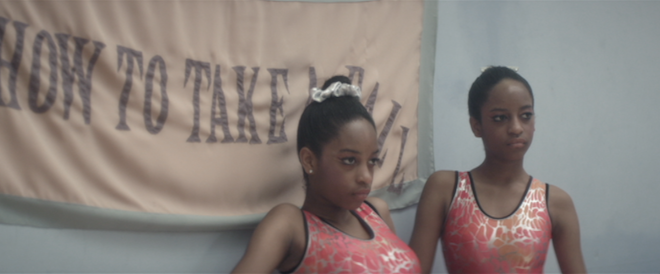
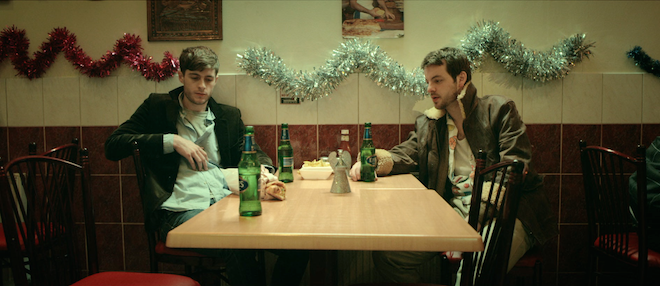
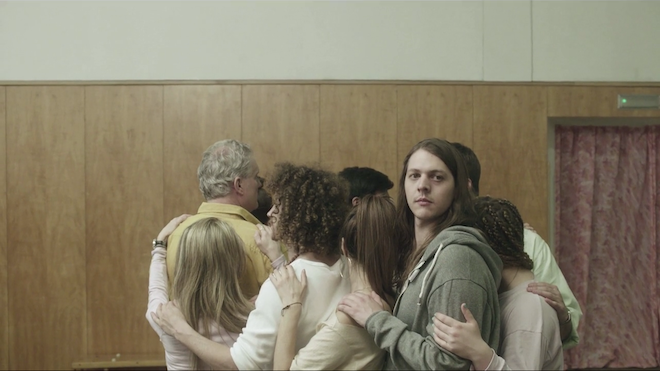
Tags: Lucy Luscombe
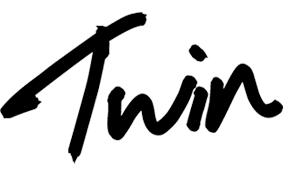









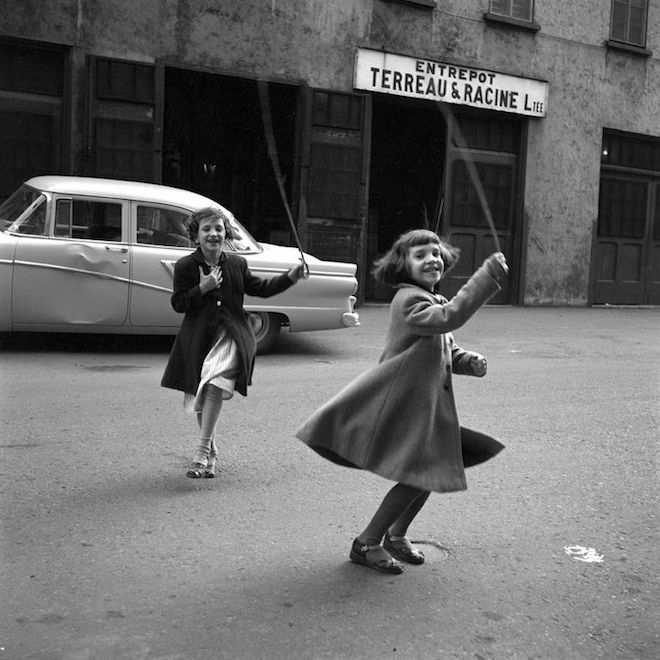
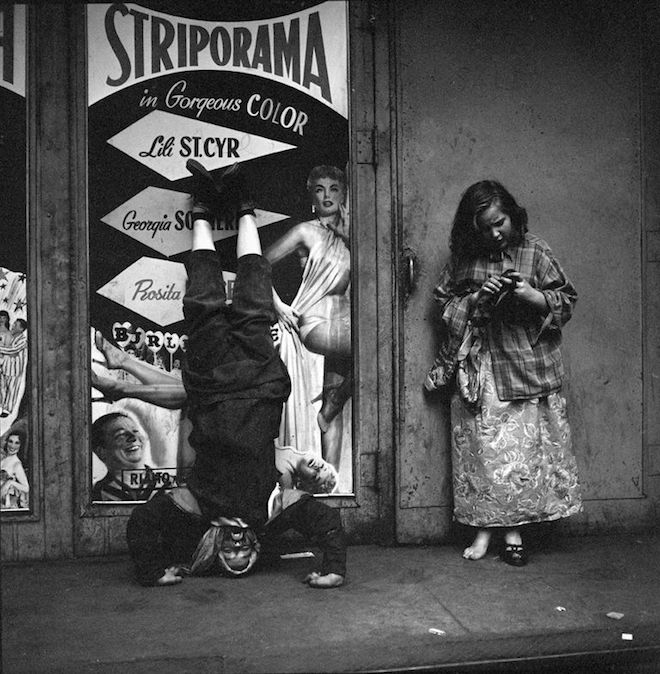
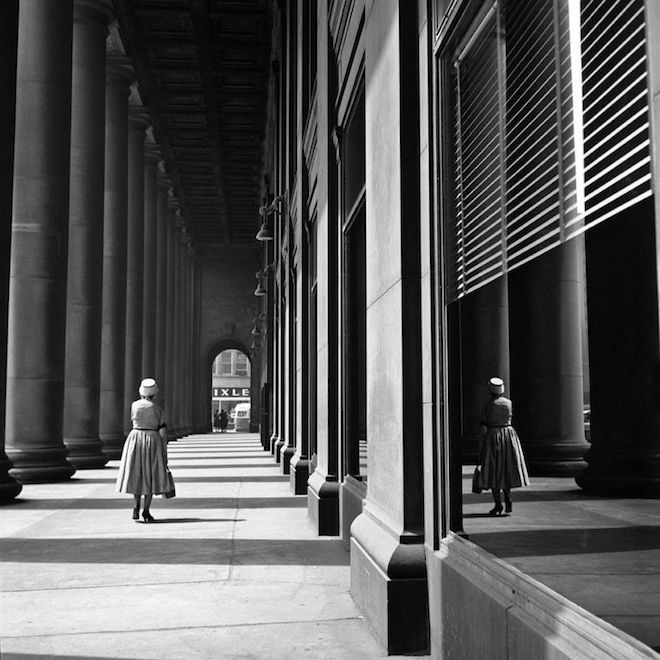





















 Twitter
Twitter
 Tumblr
Tumblr
 YouTube
YouTube
 Facebook
Facebook
 Instagram
Instagram
